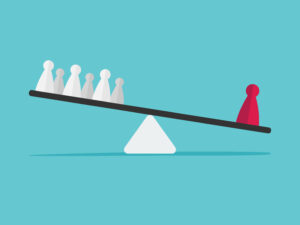Data, facts and figures on loneliness as a determinant of health and trust in governments and leaders.

61
percent of the 33,194 people from 28 countries around the world interviewed for the 2025 Edelman Trust Barometer declared that they hold “grievances against business, government and the rich”. They are convinced that their life is made more difficult by their government and economic system, and they believe these only serve the interests of a few. “To bring about change, four in ten would approve of one or more of the following forms of hostile activism: attacking people online, intentionally spreading disinformation, threatening or committing violence, damaging public or private property,” the report discloses. Among respondents aged 18-34, this rises to a whopping 53 percent. Political polarisation has also increased compared to 2024, such as people’s anxieties – which include the fear of losing their job as a result of globalisation, recession or new technologies. And the concern that government and business leaders and also journalists and reporters “purposely mislead people by saying things they know are false or gross exaggerations” has even reached an “all-time high”. In relation to these three groups, around 70 percent of respondents in each case are worried that this is happening. The Edelman Trust Barometer has provided data for the past 25 years, from lower middle- and also higher middle- and high-income countries such as Kenya, Brazil and France.
Source: 2025 Edelman Trust Barometer, Edelman Trust Institute
1

out of six people worldwide suffer from loneliness. According to the recent report “From loneliness to social connection” by the World Health Organization (WHO), loneliness affects all age groups but it is “most common among adolescents and young adults and decreases with age”. The highest rates are found in the WHO African Region, at 24 percent, whereas the WHO European Region has the lowest rate of about 10 percent. Social isolation and loneliness have serious impacts on mortality, physical health, mental health and society, as the report reveals: “New estimates suggest that loneliness accounts for approximately 871,000 deaths each year”. To counteract this, the authors of the report recommend advocacy, public campaigns, networks and coalitions that aim to strength social cohesion. According to the WHO, eight WHO Member States – all high-income countries – have already developed policy strategies here. These are “Denmark, Germany, Japan, Finland, Netherlands, Sweden, the United Kingdom and the USA”.
